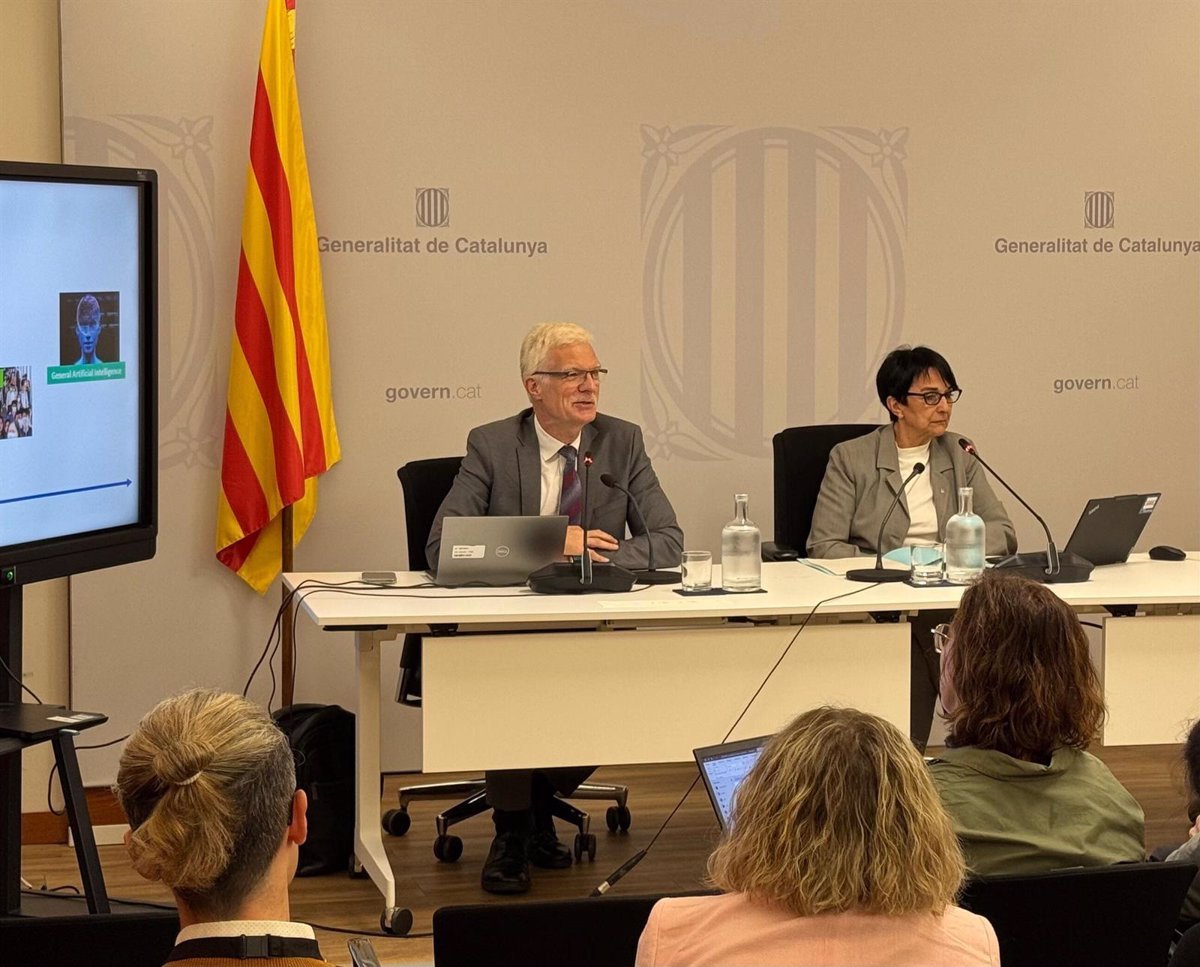It is ensured that the quality of class relationships «influences» learning
The Director of Education and Skills at the Organisation for Economic Co-operation and Development (OECD), Andreas Schleicher, advocated for a «balance» between technology and learning, urging teachers to promote social relationships in the classroom and connect with students to enhance their outcomes.
He made these remarks during a session on Monday at the Department of Education and Vocational Training of the Generalitat, together with the Secretary of Educational Improvement, Pepín Beltran, attended by around 60 university students.
These students were from pedagogy and psycho-pedagogy classes and the teaching master’s program at the University of Barcelona (UB), Autonomous University of Barcelona (UAB), University of Lleida (UDL), and Rovira I Virgili University (URV) in Tarragona, as well as participants in the SENSEI program.
Building social capital
Schleicher asserted that when demonstrating students’ academic skills, it is evident that the quality of social relationships is «not very strong,» and in today’s world, where he suggests that people should be known differently, the building of social capital should be encouraged.
Regarding classroom technologies, Schleicher highlighted how «powerful» technology can promote student learning, as it can make different subjects more engaging and enable interactive learning. However, he emphasizes that it is a matter of balance, in his words.
«The use of technology in school is an excellent topic. Many students claim they cannot focus on the ‘smartphone,’ and many say they are less in control of their emotions. As a teacher, you cannot control their use throughout the day, but only what is done during class.»
Class relationships
Furthermore, he stated that OECD data shows that teachers play a significant role in students’ well-being and their learning capacity, and calls for them to connect more with their students, as students learn more from teachers they appreciate: «The quality of the relationships you establish influences the class.»
He warned that one of the major educational issues is the «separation of assessment,» which he believes has led to an education focused on content reproduction and argues that with technology, there is the opportunity to reintegrate learning, in his words.
He also defended the importance of creating an environment where teachers see it as «attractive» to continue training and believes that migrant students need to be addressed.
Beltran, on the other hand, believes that one of the most important challenges in education is the use of AI, knowing how to use it and «value» it, and encouraged teachers to work on these changes to ensure they are on point.

